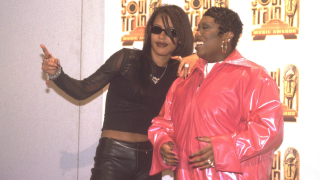It’s cold outside, and for many mamas, keeping their little one’s fragile skin protected is important. Babies’ skin is much more sensitive and delicate than adults’ skin. Their fragile skin requires protection and needs to be properly moisturized to retain hydration. And eczema, a noncontagious, dry skin condition that can lead to flaking, itching and rashes, is on the rise in infants and can be exacerbated during winter months. Factors such as genetics, environmental pollutants, lifestyle issues and irritating products play into the condition. But for the most part, it is a chronic inflammatory skin condition involving a disruption of the skin barrier and an unbalance of its microbiome, in which barrier disruption is often correlated with changes in its bacterial landscape. Thus, for optimal skin health, mothers should look for skin care products that will keep their precious tykes’ skin balanced while providing deep moisturization for overall repair and protection.
We spoke with Mercedes E. González, M.D., a Baby Dove pediatric dermatologist, for expert advice on choosing the proper skin care that won’t inflame or irritate our little ones.
EBONY: How is baby skin different from an adult’s?
Dr. González: A baby’s skin is 30-percent thinner than adult skin and loses moisture up to five times faster, as it is immature and thus, more vulnerable to damage and dryness. Baby skin is much more sensitive to damage from factors in the external environment, such as cleansers and UV light, in part, because the skin-specific repair mechanisms are still immature. Because of these differences, it is important to protect and support the skin microbiome, which is the living layer of microbes on our skin that represents one critical component to keeping baby’s skin healthy, hydrated and functioning properly.
EBONY: Can you explain a little a bit about our skin biome and why it’s important to keep it balanced.
Dr. González: The number of microbial cells living within us and on us outnumbers the number of human cells tenfold. The skin microbiome is made up of numerous diverse communities of microbes that live on our skin and play an important role in maintaining the skin’s pH, educating the skin’s immune system, and in protecting the skin from disease. There is diversity of bacterial communities in healthy skin, and a decrease in diversity is associated with skin disease and a compromised skin barrier. For that reason, it is important to maintain a healthy balanced skin microbiome.
EBONY: Since baby skin is more sensitive than adult skin, how should we care for it differently than our own?
Dr. González: You should always use products that have been tested and shown to be gentle enough for use on baby skin. I like to recommend Baby Dove Rich Moisture Tip To Toe Wash or Sensitive Moisture Tip to Toe Wash to new moms. Baby Dove builds on Dove’s longstanding heritage of mildness and moisturization, and has more than 10 years of R&D research into skin microbiome and baby skincare. Baby Dove is committed to Skin Microbiome Care – developing products that nourish the microbiome your baby was born with to support baby skin’s natural health. Baby Dove cleansers and lotions are made with prebiotic moisturizer and contain nutrients, such as stearic acid, that are 100 percent identical to those found naturally in skin, which work together to support your little one’s skin. The result is a very thoughtful composition of ingredients in all of Baby Dove’s products, where each ingredient serves a purpose. Both products use mild, sulfate-free surfactants, skin natural ingredients, and are pH neutral. Beyond mildness, they also replenish moisture that is normally lost during cleansing. Infused with glycerin, this works as a prebiotic which acts as a nutrient to feed the skin bacteria and keep the skin microbiome healthy. The Baby Dove Tip to Toe Wash cleansers, available in Rich Moisture and Sensitive Moisture, are as mild as water for a baby’s skin and contain Dove’s signature ¼ moisturizer to replenish moisture and nutrients that is naturally lost during cleansing. And although the surfactants used in the Baby Dove Tip to Toe Wash are mild and sulfate free, the cleanser still lather (but without any of the drying effects associated with other washes.)
EBONY: While we are on the subject of the fragility of baby skin, eczema is on the rise in infants; why do you think this is so, and how should we treat it?
Dr. González: “This is certainly true, especially in industrialized countries. We don’t know exactly why, and there are likely several factors affecting the rise of eczema in infants. One popular theory is the hygiene hypothesis which states that a decreased early life exposure to infections and microbes in our environment has led to a rise in allergic diseases such as atopic dermatitis, the most common type of eczema. There are certain environmental risk factors such as climate, urban versus rural setting, and pollution that have contributed to changes in prevalence. Other factors associated with an increased risk of atopic dermatitis include: diet, especially those high in fast-food consumption, breast-feeding and time of weaning; obesity and physical exercise; and tobacco smoke, among others. Conversely, dog exposure early in life, and day care attendance in the first two years of life appear to be protective against the development of atopic dermatitis. Newer literature has shown the daily use of emollients from birth in newborns that are at high risk for developing atopic dermatitis, for example, an infant with an affected sibling or parent, can help prevent the development of atopic dermatitis. In patients with eczema, the use of fragrance-free mild cleansers and lotions is especially important. I recommend the use of Baby Dove Sensitive Moisture Tip to Toe Wash followed by the whole body application of the Baby Sensitive Moisture Body Lotion within three minutes of coming out of the bath. In newborns who are at risk of developing eczema, this routine should be started at birth.













